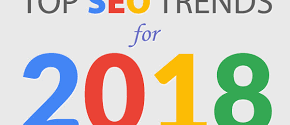



Note:
Disclaimer:
Atmost care has been taken to present the facts with references but few of the views presented may not be entirely based on proven facts but might be influenced by observations and expert opinions.
SEO is an amalgamation of science, art, commerce and technology and that is why it is one of the most fascinating fields in the world. At the same time, it has been a subject of controversy due to the reason that SEO industry has been one of the prime sources of web spamming – thanks to our never-ending race to Google page one. Don’t get me wrong here – there are plenty of great SEO professionals out there who do wonderful work and have always believed in doing quality SEO work. In fact, we have, in a way, helped seach engines to get to where they are today – advanced. Here, I’m referring to the other side of the coin – the ugly face of the industry.
So, is SEO spam? No, SEO is not spam said Google long back in 2011 ( In fact, Google’s former Head of Spam, Matt Cutts, has said several times at conferences that SEO is not spam, but in 2011 he went on record by devoting a video to it. Then, what is SEO?
We’ve never had a standard, universally accepted definition for SEO, there are different versions doing the rounds for a long time. Isn’t it necessary for the community to get together on a common platform and come up with a standard, universally acceptable definition of SEO?. Is it difficult to define SEO as it’s an evolving field? Is there a flaw in the basic definitions of SEO which are commonly used? Is SEO evolving in the first place?
People have different views and perceptions, and we have opinions in bits and pieces – I would like to put things together and set a stage for further discussion. My intention is not to define SEO ( as, I believe, that should be a collective decision ), but to suggest a more holistic version which can be discussed and debated so that we collectively come up with a standard, universally accepted definition of SEO which will stand the test of time.
‘SEO is dead’ – if you are an SEO professional or some who follows SEO industry closely, you must be sick and tired of hearing this one line time and again. Before, we deal with this part, let’s have a look at the rough definition of SEO ( that reflects the other similar versions ).
” SEO is the process of optimizing your website in order to make it accessible, user-friendly and search engine friendly” Sounds good?
We interviewed SEO veteran Jill Whalen, often known as the queen of SEO, who quit SEO back in 2014. She talked about her core strategy that had been the base for all her SEO work done over a 20 year period of her career – which pretty much sums up her idea/definition of SEO as well. Here it is:
“My core strategy from the very beginning was to teach my clients to provide a website that was free of technical issues that might impede search engine crawlers from being able to index the information it contained. Combined with training them to understand what good content was and how to integrate it into their websites in a way that was both user- and search engine-friendly.”
– Jill Whalen
With due respect to her, this definition sounds like ‘If you build it, they will come’ ( To be fair to her, I’m sure she doesn’t believe in ‘build it and wait’ – she did talk about the holistic approach to SEO, I’ll quote those lines later )
This is one of the commonly shared views of SEO and some even have a strict view that any activity which cannot be related to the on-site optimization part is not SEO. Is it? The answer is ‘Yes’ in a way and ‘No’ – Yes, it’s debatable.
The problem with this definition is that it tells about the basic requirements/essentials of SEO process. It doesn’t tell us about the objective of SEO. Our SEO objective is not to make a website that meets search engines’ guidelines – that is a requirement not objective. Our SEO objective is to get as much visibility possible in relevant search results and attract maximum (relevant) traffic from the search engines. So, definition of SEO should not only include the ‘requirement’ part but also the ‘objective’ part.
How does it make a difference? To set things straight – no matter, your website may be well-optimized with great content assets and may also provide great user experience. Beyond a point, you will need ‘LINKS’ to get your website attain maximum visibility in search results specifically if your niche is highly competitive.
Now, let’s have a look at Wikipedia’s definition of SEO – in fact it sounds a bit more holistic than the above discussed version.
“Search engine optimization (SEO) is the process of affecting the visibility of a website or a web page in a search engine’s unpaid results—often referred to as “natural,” “organic,” or “earned” results”
Source: Wikipedia
There is a problem with this definition as well – ‘process of affecting the visibility of a website or a web page’. Manipulation also helps affect the visibility of a website. Manipulation is spam. Optimization is not. Optimization is done as per search engines’ guidelines and it’s not risky. So, the definition is too generic and it can be misinterpreted as well.
So, the definition of SEO should include a very important point – anything done against search engines’ guidelines is not SEO. It’s manipulation – which is equivalent to ‘spam’, Period. If we, SEOs, don’t draw this line clearly, we’ll be continued to be called ‘spammers’ by our haters. Black Hat is not SEO, period. I’ll talk about ‘ Gray Hat’ a bit later.
Now, coming back to links – Isn’t link building an integral part of SEO process? SEO is the process of optimizing your website in order to make it accessible, user-friendly and search engine friendly – sounds more like on-site optimization. What about link building? – remember, we used to call the process ‘off page optimization’ 🙂
The subject link building itself is debatable. You may say, Google targets only link spam and building good links are just fine. Has Google ever approved link building as a process to improve rankings? Does Google endorse link building? Strictly speaking, NO! If you go by the correct definition of ‘link building’, Google doesn’t approve link building as a process to improve rankings. Google endorses ‘Link earning’ not ‘Link Building’. (Here is the link to a fantastic article written by Jon Cooper, titled what link building really is ). Now, Jon Cooper has ‘earned’ this link, he didn’t ‘build or create’ it 😉
So, is link building against Google’s guidelines? Well, again a big NO. Link building for the sole purpose of achieving rankings is against Google’s guidelines. Building links for the purpose of referral traffic is absolutely fine provided your link building pattern reflects your right intention.
Google says:
“Any links intended to manipulate PageRank or a site’s ranking in Google search results may be considered part of a link scheme and a violation of Google’s Webmaster Guidelines. This includes any behavior that manipulates links to your site or outgoing links from your site.
Additionally, creating links that weren’t editorially placed or vouched for by the site’s owner on a page, otherwise known as unnatural links, can be considered a violation of our guidelines.”
Read more on Google’s take on link building here
Google’s previous take on rankings
“In general, webmasters can improve the rank of their sites by increasing the number of high-quality sites that link to their pages.
Google recently changed that line and replaced it with “In general, webmasters can improve the rank of their sites by creating high-quality sites that users will want to use and share. “ Indicating clearly that link building is not something that they encourage. Did the line that got replaced mean Google encouraged link building in the past. Nope! If you have missed it, reread the line, it says, “Webmasters can improve the rank of their sites by increasing the number of high-quality sites that link to their pages”. It didn’t specify in what way high-quality links can be increased – not definitely by building links. It’s a fact that Google has always favored earning ‘editorial’ or ‘natural links’.
So, Google didn’t favor link building then, and it doesn’t favor link building for the sole purpose of rankings now, Period.
So, all these years of ‘SEO is dead’ claim is just nonsense. Google hit the last nail in the coffin by aggressively running it’s massive manual-penalty drive – if penguin discouraged spammers to a great extent – the manual penalty drive left that section of the SEO community which had always been guilty of crossing limits and taking advantage of algorithms’ loopholes rattled.
Though spammers are still operating out there, the mainstream SEO community has aligned well with Google’s version of SEO process. So, SEO is not dead. Manipulative link building process (as a long-term strategy) is dead which was never SEO in the first place.
So, with link building (for the sole purpose of rankings), which has been generally believed to be a part of SEO process ( though not true), is no longer attemptable in a big way – the impression remains that SEO has been reduced to only On-site optimization. Only the technical SEO remains now? – is the question often asked in SEO circles. Thus, the ‘SEO is dead’ chorus got louder in the recent times.
Before I answer these questions, let me quickly talk about Gray Hat. Gray hat practices can be termed as ‘flying under the radar’ tactics. Though they may be here and there sometimes minorly violating search engines’ guidelines – they don’t get to that extreme areas which may result in penalties. For ex: branded links are built with a dual purpose of refferal traffic and ranking boost. Is this acceptable? Can gray hat be accommodated into SEO? You’ll find the answers to these questions between the lines below.
‘SEO is now marketing’ declared a few SEO thought leaders in the recent times, after all, the manipulative tactics were pretty much made ineffective by Google. Now, arises the real question. After the scope of manipulative link building process has been reduced drastically, now the general perception is that SEO has been reduced to on-site optimization and ‘link earning’ is easily said than done. So, are we just trying to save the industry by claiming that ‘SEO is evolving’ and adding every other sub-fields of online marketing into the SEO fold?
Few other blunt questions, which I had drafted thinking that I would use one of these as the title of this post – these are actually alternative titles I had come up with.
Some SEO professionals/experts don’t find this ‘modern SEO’ term, that has been doing the rounds in the recent times, appropriate – which pretty much includes all sub-fields of online marketing ( except paid ) including social media, PR, content, UX etc. ‘Modern SEO’ and ‘Inbound Marketing’ are interchangeably used.
Now, Is it right to bring all these sub-fields into SEO? If SEO is Marketing, why don’t we just call it ‘Marketing’ and let go of the term ‘SEO’? The answer lies in the fact that these sub-fields contribute to one of the most important factors of the SEO process – ‘Links’. Other processes help us to ‘earn’ and also ‘build’ good ( referral) links? For ex: Social media helps us to build relationships and promote content which in turn helps us to earn links. PR/Outreach results in link acquisitions. Yes, link building for the sole purpose of boosting rankings is not approved by Google. Here Gray Hat comes into play, Intention matters. Social and outreach/pr helps us to ‘earn’ links and the process also involves building refferral links and yes, they help boost rankings as well. The primary objective is to attract refferal traffic but the links we build do help us in rankings and we know that ( It may be our secondary objective – but we are not into desperate link building process). It would be foolish and impractical to go around ‘nofollowing’ all the links we build as a part of our outreach/PR efforts. There is no manipulation involved here – yet it may amount to, in a way, minorly violating search engines’ guidelines as our PR/social efforts have dual purpose – refferal traffic and rankings – but it should be ‘unavoidably’ acceptable as part of SEO. Here is a good article on Gray Hat.
This holistic approach to SEO has always been there ( atleast she has practiced it always ) claims Jill Whalen. She says:
“By your definition, “Modern SEO” is simply the SEO strategies I’ve been espousing since the beginning. Which is essentially why my voice is no longer necessary in the SEO industry. Everyone has finally come around to doing things the right way! (Which of course is a great thing!)”
( Refer Jill Whalen’s comment quoted above ). Though she talks about holistic approach but she clearly defines SEO and ‘related practices’ as different.
If this approach has always existed, what has changed? As manipulative link building process has become pretty much outdated, SEOs across board ( specifically, referring to that signficant section of the community which had been practicing manipulative link building processes) are left with the only and right way to attract/obtain links. Facilitating linking/connecting relevant web pages ( link earning and building (primarily) refferal links) is very much a part of SEO – as discussed above. So, shouldn’t activities that help us to attract/obtain links be part of SEO process. Doesn’t broadening the definition of SEO make more sense now?
SEO stands alone, but these sub-fields of online marketing which can now be called the ‘subsets’ of SEO, have become an integral part of SEO process like never before. Doesn’t it make sense to bring them into the ‘modern SEO’ fold as they are overlapping with it like never before? – you’ll find further reasoning for this argument/view below.
Apart from this, SEO is not strictly a fixed set of rules, it’s evolving and the way we do SEO has been changing significantly. This gives us another strong reason to redefine it in a broader sense.
No, it’s not over yet – go, get another cup of coffee and come back to read Part II of this post 🙂
Read – SEO: Redefining Theory, Policy and Practice (Part II)
 Decoding the SEO Trends in 2018 – How to Adapt Efficiently Without Going Overboard
Decoding the SEO Trends in 2018 – How to Adapt Efficiently Without Going Overboard
 Google’s War against Spam – SEO Best Practices, Survival Strategies and Insights
Google’s War against Spam – SEO Best Practices, Survival Strategies and Insights
 SEO: Redefining Theory, Policy and Practice ( Part II )
SEO: Redefining Theory, Policy and Practice ( Part II )